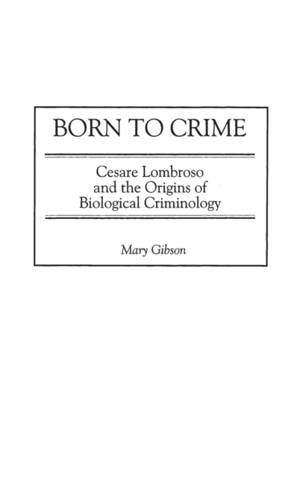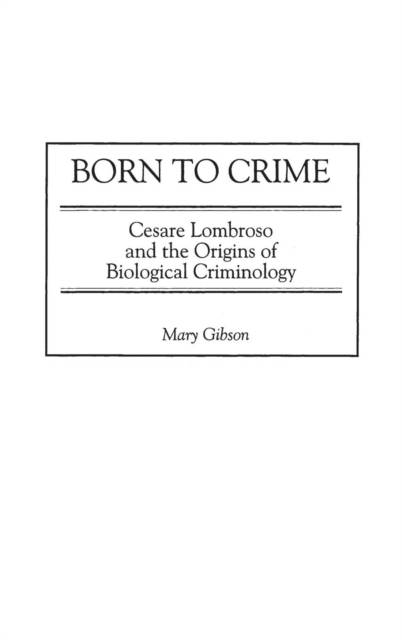
- Retrait gratuit dans votre magasin Club
- 7.000.000 titres dans notre catalogue
- Payer en toute sécurité
- Toujours un magasin près de chez vous
- Retrait gratuit dans votre magasin Club
- 7.000.0000 titres dans notre catalogue
- Payer en toute sécurité
- Toujours un magasin près de chez vous
196,95 €
+ 393 points
Description
Despite the popular perception that genetic explanations of the causes of crime are new, biological determinism dates back to the birth of criminology, and the ideas of the man widely regarded as its founder, Cesare Lombroso. His 1876 work, ^ICriminal Man^R, drew on Darwin to propose that most lawbreakers were throwbacks to a more primitive level of human evolution--identifiable by their physical traits, such as small heads, flat noses, large ears, and the like. These born criminals could not escape their biological destiny.
The scientific appeal of these theories of criminal anthropology had a powerful and long-lasting impact on criminological theory and practice in contemporary Italy, Europe, and the Western world as a whole, and even today the stereotypes they created resonate in popular culture. But while these ideas had a wide influence, their origins were very much in a specific time and place--the political, economic, and social history of modern Italy. Gibson shows that understanding the development of Lombroso's thinking is much more complicated than merely pinning his ideas onto the left-right political spectrum; he influenced socialists and fascists, lawyers and doctors, policemen and social workers alike. In the end, she argues for a more subtle interpretation of his theories, emphasizing that Lombroso himself acknowledged the multifaceted nature of criminal behavior.Spécifications
Parties prenantes
- Auteur(s) :
- Editeur:
Contenu
- Nombre de pages :
- 296
- Langue:
- Anglais
- Collection :
Caractéristiques
- EAN:
- 9780275970628
- Date de parution :
- 30-09-02
- Format:
- Livre relié
- Format numérique:
- Genaaid
- Dimensions :
- 151 mm x 256 mm
- Poids :
- 580 g

Les avis
Nous publions uniquement les avis qui respectent les conditions requises. Consultez nos conditions pour les avis.






